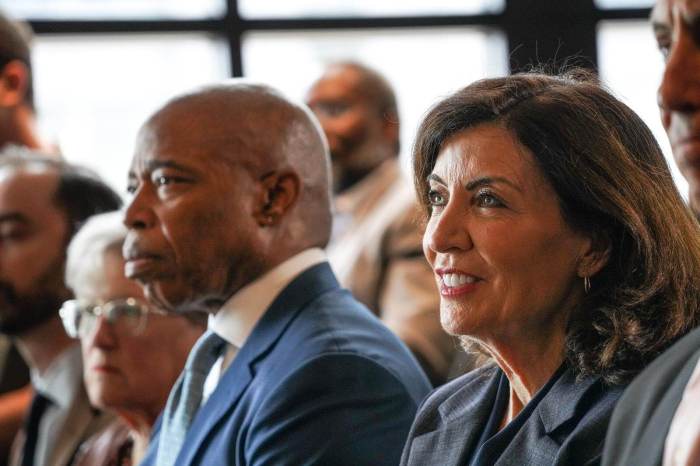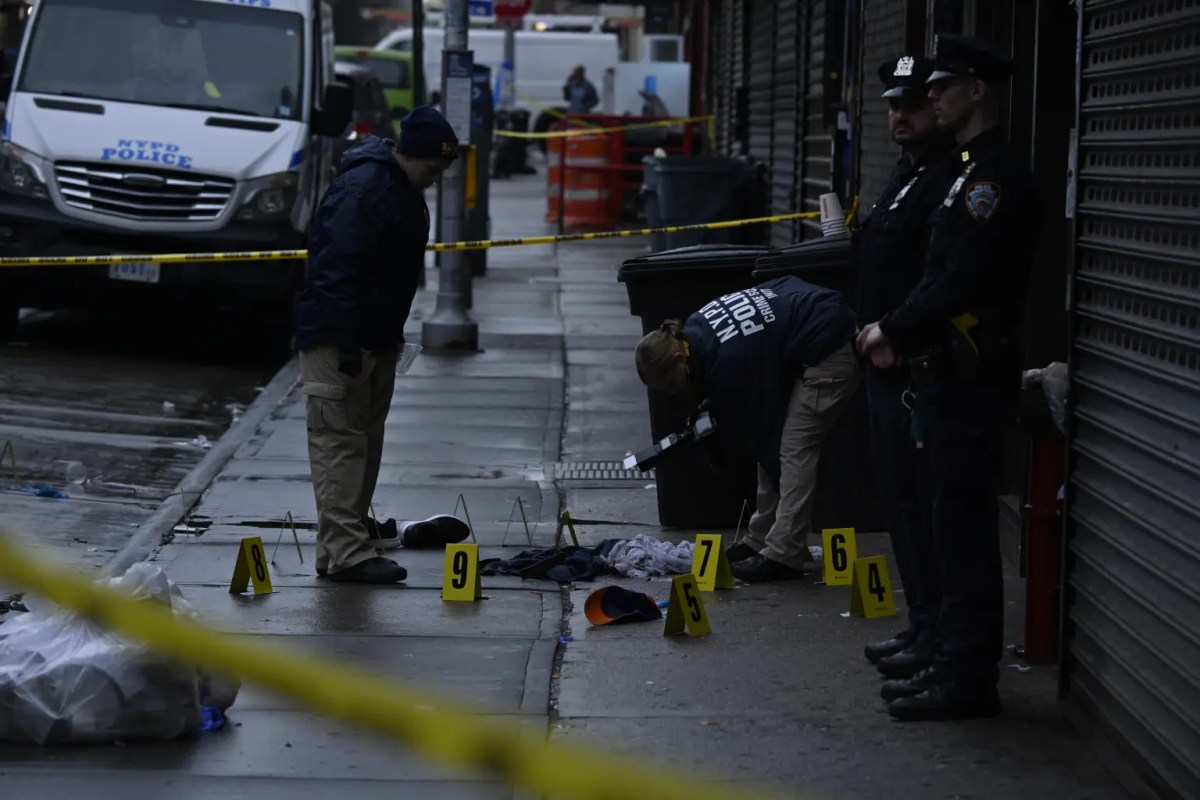The head of the MTA said Thursday that he didn’t threaten transit projects in the city or politicize the recent subway derailment in Brooklyn by bringing up the funding clash between the mayor and the state.
“In no way, shape or form was I trying to politicize the issue,” said chairman Thomas Prendergast. The MTA’s board next month will have to approve a capital plan, which funds big projects like bringing the LIRR to Grand Central, as well as keeps the subway in good condition.
When a G train went off the rails in Brooklyn on Sep. 10, Prendergast used the derailment the next day to say how frustrated he was with the city’s funding for the capital plan. The investigation into why the G train collided with a collapsed bench wall hasn’t yet determined the cause.
“I am tired of writing letters to city officials that result only in vague calls for more conversations,” the chairman said in a searing statement that criticized the city for not giving the MTA enough money.
When asked why he politicized the Brooklyn derailment — and not a Metro-North accident that may have been prevented through positive train control, a high-tech system that can stop a speeding train — Prendergast said he didn’t.
“That’s your perception. That wasn’t my intention,” he said. “The MTA is responsible.”
On Monday, the chairman faced opposition from the MTA board when he said staff would look at the “urban portion” when revising the $26.8 billion capital plan that has to be approved by a state review board.
He pushed back when a reporter asked if he would continue to threaten dollars for city projects or do cuts across the board.
“Your use of the term threaten is certainly not my use of the term threaten,” said Prendergast.
He also said he was frustrated because the MTA had never gone this long without having a capital plan approved. “We’re running out of time,” he said.
The mayor’s office said it wanted to know where the state will get the $8.3 billion it has promised the MTA, and said Albany has taken money for transit in the past.
It said in a statement that the city is the primary funder of the MTA, and should have more say in projects.
“Any talk of cutting funds from the capital program before these key issues are addressed would be premature, divisive, and irresponsible political game-playing,” said Amy Spitalnick, the mayor’s spokeswoman.
Transit advocates from three groups said there is enough blame and credit for the MTA’s finances to go around for decades, and that riders want to see a better subway system — not scores settled. They called for the state to say where the money will come from, and the mayor’s office to make its own explicit proposal.
“Unfortunately, to this point, the needs of public transit riders have been subsumed into a political fight between the governor and mayor,” said Gene Russianoff, of the Straphangers Campaign.

















